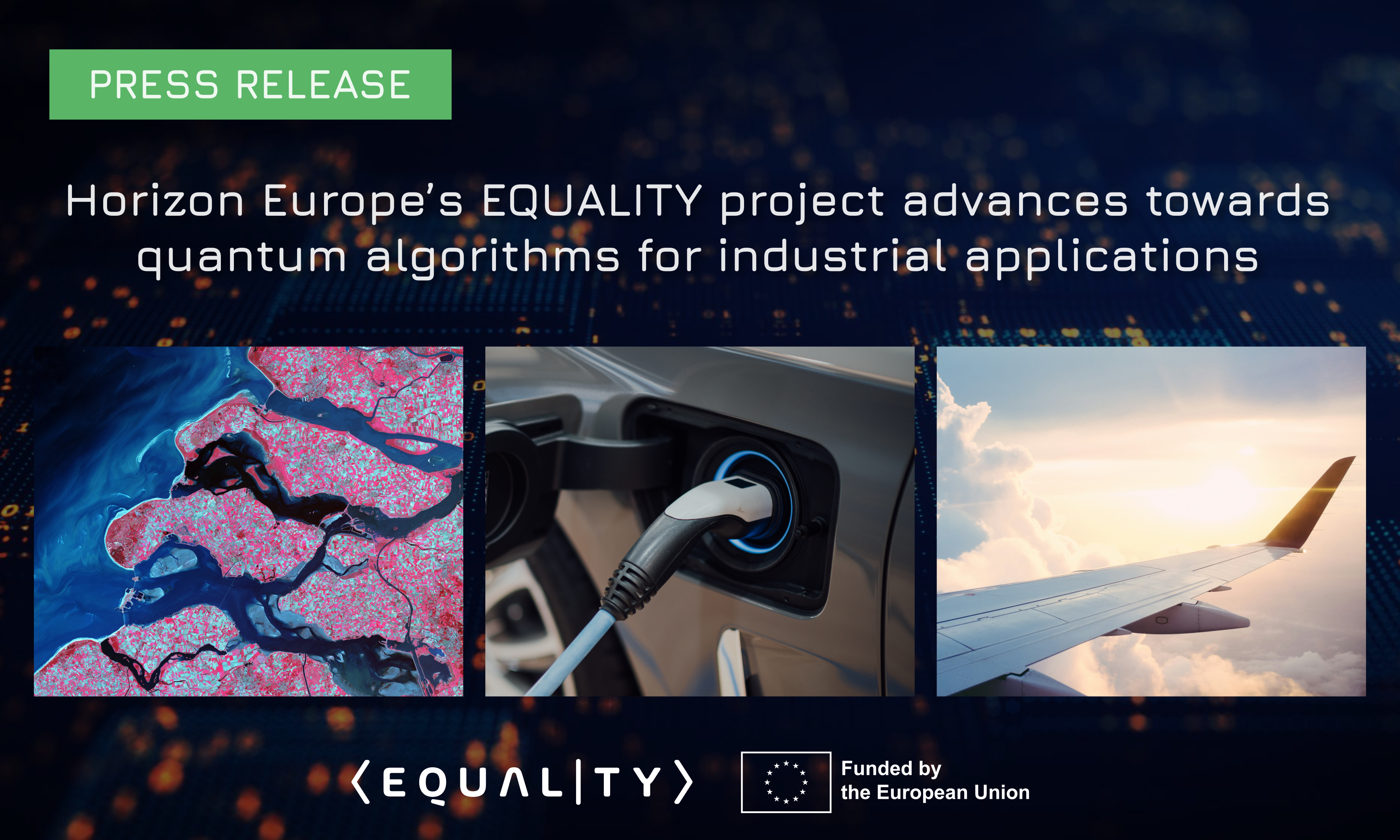

The project’s goal is to develop a full stack of technologies aimed at bringing practical advantage of quantum computing to the industry in the near term. Read our new press release.
Quantum computing is one of the frontiers of research and innovation due to its potential to outperform classical computers in solving certain tasks. However, using current quantum hardware requires grappling with the limitations of this nascent technology.
The EQUALITY project’s objective is to develop a full stack of technologies comprised of core quantum algorithms and hardware; a set of enabling technologies (mid-ware and APIs, efficient resource utilisation strategies, etc) aimed to make the most of the imperfect Noisy Intermediate-Scale Quantum (NISQ) hardware; and a set of use cases where the quantum computing is expected to bring the largest impact.
During the project’s first 18 months, the consortium has developed novel quantum approaches to optimisation, analysis of noise in quantum bits and its impact on applied computations, and tailoring of quantum circuits.
Project partners have also had notable scientific advances aimed at the efficient utilisation of quantum resources, which is very important in the context of near-term quantum computing applications. Among them are efficient approaches to circuit cutting, analog approaches for solving partial differential equations, efficient estimations of quantum noise with blind quantum computation, and hardware-oriented compilation of quantum circuits.
Finally, an API for a quantum routine used for partial differential equation systems has been put in place, enabling further research and potentially experimental testing of the routine for applications relevant to the aerospace industry, one of EQUALITY’s target use cases. This is a cornerstone for the anticipated full-stack application-specific quantum computing envisioned by the consortium.
About the EQUALITY project
The EQUALITY (QUAntum ALgorithms for IndusTrY) consortium comprising Airbus, Capgemini, Da Vinci Labs, Fraunhofer ENAS, German Aerospace Center, INRIA, Leiden University and PASQAL, was selected by the EU’s key funding program for research and innovation, Horizon Europe, to develop innovative quantum computer algorithms that are aimed to solve strategic industrial problems. The partners will receive a cumulative six-million-euro funding from the European Commission between 2022 and 2025.
EQUALITY targets industrial use cases that can benefit from the quantum-enabled speed-up in the near and medium terms. These are computational fluid dynamics for aerospace and energy applications, the design of batteries and fuel cells, the development of new materials for energy applications, multidisciplinary optimisation, space mission optimisation, and space data analysis. Each of these tasks, faced routinely by the industrial partners, is highly demanding on computational resources, forcing engineers to either use simplistic models or rely on expensive build-and-test cycles. The opportunity provided by quantum computers to tackle such questions promises a competitive edge for the European industry.
By transforming current industrial interest into widespread adoption, EQUALITY solidifies the link between strategic European industries and the emerging quantum ecosystem while contributing to technologies critical to the green transition.
